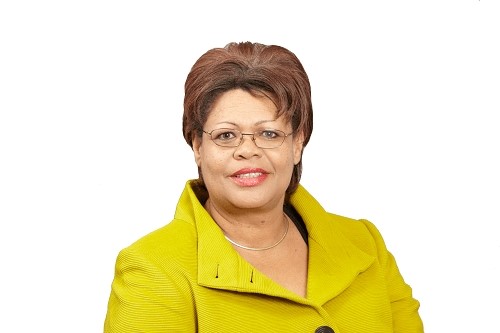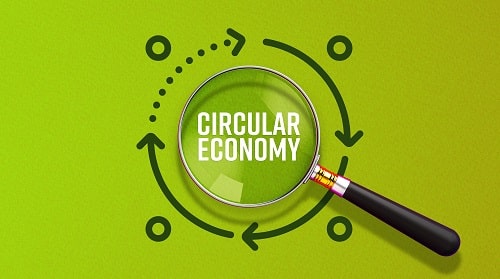Gloria Mills is president of the European Trade Union Confederation (ETUC) women’s committee.
Features
‘We have to fight for a better world’
She was the first Black woman to be elected president of the TUC in 2005, representing the union at the highest level in government and internationally. A lifelong union member and professional, she has championed for diversity issues and equal opportunities in the workplace regardless of race, gender, religion, age, disability or sexual orientation.
You’ve been a union rep or worked with unions since 1978. What made you join and get into this work?
I joined the print unions on the first day I started employment. It was the natural thing to do from my background. But it was the treatment of women with children that drove me into becoming active. I was appalled that men with cars were treated more favourably than women with children.
 Gloria Mills President European Trade Union Confederation (ETUC) Women’s committee
Gloria Mills President European Trade Union Confederation (ETUC) Women’s committee
I was elected Mother of the Chapel (the name for a female shop steward within the printing unions) with a new contingent of 75 per cent women in leadership. The Chapel negotiated a Flexitime Agreement so women could work core hours between 10am and 4pm instead and also negotiated a Childcare Agreement – one of the first such agreements.
If women workers had problems with their childcare arrangement they had to telephone in sick. They were given no flexibility or leeway for being late. It was a rigid 9am to 5pm system. It was so unfair to see the trauma women workers were experiencing. However, what I soon observed was that men who had problems in their cars breaking down or needing repairs would telephone in to say they had a problem but were not called in by their manager to explain why they were late in the office, but women dreaded going in to the same manager to explain a breakdown in their childcare arrangements.
Trade unions have a complex history when it comes to race relations. How would you say things changed when you joined in the late 1970s and following on to today?
Trade unions have been in the vanguard since the 1980s in developing policies and strategies to challenge racism and foster better race relations between communities. The TUC Respect Festivals organising against racism have been a key driver of change. As part of trade unions’ work since the Black Lives Matter protest in the UK in 2020 – the TUC has set up an Anti-Racism Task Force to organise, bargain and campaign for equality.
You’ve campaigned on equal pay, childcare, women, employment, race and human rights issues. Which area demands most attention today?
The Covid-19 pandemic has exposed glaring inequality gaps in health and wealth. There are huge inequalities in education, employment, health, pay and pensions in Britain today.
The area that demands more attention today is closing the inequality gaps in the labour market – in particular, the pay and employment gaps.
The racial and ethnicity pay gaps are punishing Black workers and pushing them into dire poverty. The racial disparities in the UK labour market need to be redressed urgently. It is estimated to cost the UK economy £24 billion annually according to the McGregor-Smith Review on Race in the Workplace. Tackling economic inequality and injustice is a priority for the government and for Corporate Britain.
Higher Covid deaths among BAME people have been found to be driven by occupational factors (Black people overrepresented in customer facing or ‘risky’ jobs like social care). Do you think Covid has laid bare inequalities in our society? What needs to be done?
The Covid-19 pandemic exposed deep structural racism and inequality in the economy and society. Black workers were more likely to be key workers and working in the frontline – they were working in roles that exposed them to higher risks but with less protection. BAME workers were not provided with the personal protective equipment, and health and safety protection and rights to which they were entitled. They were over-exposed and under-protected. They were more likely to contract the virus, more likely to die, lose their jobs and their livelihoods.
They were also over-exposed in sectors characterised by insecure and precarious jobs – such workers did not qualify as employees to have the same rights to risk assessments and health and safety protection at work.
Their disproportionate rate of deaths shamed our nation. At the height of the pandemic – in November 2020, a trade union representing BAME workers had to bring a Judicial Review to win health and safety protection to be extended to all ‘gig economy’ and frontline workers. The High Court found that the UK government failed to properly implement the EU Health and Safety Directive. (See TUC Dying on the Job: Racism and Risk at Work report)
What do you make of our current government and its work on equality?
The current government talks a good talk on equality – soundbites without substance. They need to produce a comprehensive equality action plan to open up opportunities across all sectors of the UK – starting with Whitehall, Westminster and Corporate Britain to provide fair access to jobs, training and skills to poor and excluded communities. Building Back Better must give equal and fairer opportunities to young, Black, disabled, women and LGBT+, and working class people shut out of opportunities – so it is a national call out to the government and Corporate Britain to build back fairer.
Fairness and equality must be at the heart of their levelling up agenda and their building back better strategy. In the last decade, the government’s actions and agenda have been levelling down Britain with austerity measures, privatisation and outsourcing jobs, zero hour contracts, insecure jobs and driving down pay in social care and other sectors. There is now a crisis in social care.
Child poverty and in-work poverty are increasing and more families are now dependent on food banks to feed their family. The end of the furlough scheme will add more pressure to family income. For many of them – the choice is between eating and heating.
What keeps you motivated to do the work you do?
When you see the scale and extent of injustices around you – you know that you have to fight for a better deal for people and for a better world. You have to hold people in leadership and positions of power to account. There is no time to waste. You have to remain motivated and inspired to ensure that equality and justice are achieved in your lifetime. The price of progress is eternal vigilance. We have to be vigilant and ensure progress happens on our watch and in our life. There are big issues to be addressed – structural, systemic and institutional racism, tackling hate crimes, climate justice, the scourge of violence against women and girls – gender-based violence in society must be at the top of our political agenda.
What three things do you want employers to do to make their workplaces equal?
1. Employers need to open up the ‘blocked pipelines’ and barriers to employment in their workplaces. They need to open up recruitment to ensure that their workforce and workplaces look like Britain in the 21st Century. Too many workplaces are racially divided by occupational segregation – virtual and horizontal. Black workers are over-represented in low paid, insecure and zero hour contracts.
2. Develop equality plans with clear actions and outcomes – to recruit, train and upskill people and in particular young people to have sustainable careers and jobs. Provide paid internships, mentoring and shadowing schemes and open up new pipelines for local and excluded communities.
3. Take action to close the gender, disability and ethnicity pay gaps.
Finally, October is Black History Month. Is this occasion important and why do you think so?
Black History Month is important to recognise the rich legacy that Britain inherited from the contribution of Black people as part of its Empire, the Commonwealth and the contribution of the people from the African Diaspora. It is important to celebrate the pioneers, the scientists, the innovators and creators and Black history makers. Too often, their contributions have been air brushed and erased from historical records. The huge distortion of Black history leaves huge gaps in knowledge for successive generations. It is imperative that we celebrate Black talent, recognise their contribution to Black people into building Britain into the strong economic and successful nation it is today. Moreover, Black people are still seeking reparative and economic justice for the exploitation and unwaged labour for the enslavement of Black people.
FEATURES

How to build circular economy business models
By Chloe Miller, CC Consulting on 07 April 2025
Widespread adoption of a circular economy model by business would ensure greater environmental and economic value is extracted and retained from raw materials and products, while simultaneously reducing carbon emissions, protecting the environment and boosting business efficiency and reputation.

What does the first year on an accelerated net zero path have in store for UK businesses?
By Team Energy on 07 April 2025
The UK is halfway to net zero by 2050 and on a new, sped-up net zero pathway. In light of this, Graham Paul, sales, marketing & client services director at TEAM Energy, speaks to TEAM Energy’s efficiency and carbon reduction experts about the future of energy efficiency and net zero in the UK.

Aligning organisational culture with sustainability: a win, win for the environment and business
By Dr Keith Whitehead, British Safety Council on 04 April 2025
The culture of an organisation is crucial in determining how successfully it implements, integrates and achieves its sustainability and environmental goals and practices. However, there are a number of simple ways of ensuring a positive organisational culture where everyone is fully committed to achieving excellent sustainability performance.



